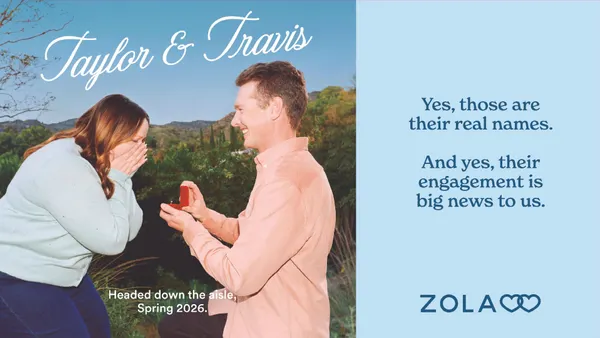Dive Brief:
- AB InBev's Ritas — the brand behind Bud Light Lime-A-Ritas, among other beverages — took out a full-page ad in The New York Times to draw attention to terms such as "basic," "gross" and "trashy," which have been used to describe both the line of canned margaritas and, as the ad points out, have also been directed at women, according to materials shared with Marketing Dive.
- The print ad encourages women not to apologize for their attire, taking selfies and having fun. As part of its #NeverApologize creative platform, the company also created a video showing a few tweets from consumers claiming that the drink is "too sweet" and "nasty AF."
- The campaign, created by Fallon New York and directed by Lauren Sick, will run this summer with more digital and social media components.
Dive Insight:
Given that alcohol ads — especially for AB InBev brands like Budweiser — typically cater to men, the #NeverApologize campaign for the Ritas line is a welcome change of pace that signals a more socially aware shift in the company's marketing strategy, at least when the product is targeted to millennial women.
However, AB InBev is using different approaches to attract millennial women to its malt beverage lines. The progressive tone of the #NeverApologize print ad and video are in contrast with that of the just-released ad for its Bon & Viv products, which poked fun at "basic" culture, rather than pushing back against the perhaps sexist use of the term.
While the Ritas campaign was created by Fallon New York, it comes in the wake of AB InBev establishing its in-house creative agency and follows the company's broader shift toward reversing sexist booze advertising. To that point, Budweiser revamped some of its politically-incorrect 1950s advertising for International Women's Day.
Of course, Anheuser-Busch isn't the only brewing company vying for the millennial market. Heineken in April tapped Angela Kinsey and Brian Baumgartner for a campaign themed around "The Office." The NBC series continues to be one of Netflix’s most beloved TV shows, especially among millennials. These campaigns come at a time when U.S. beer volume — with the exception of craft beer — continues to decline.












